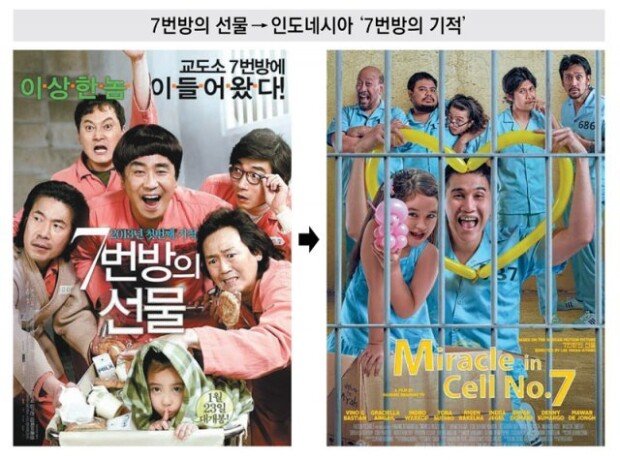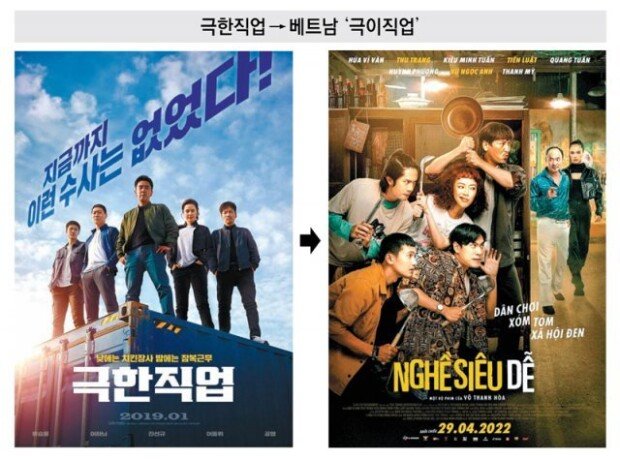Fierce competition underway to secure Korean movie rights
Fierce competition underway to secure Korean movie rights
Posted November. 05, 2022 07:24,
Updated November. 05, 2022 07:24



Since the whole world ushered in an endemic phase last spring, movie remakes of Korean films that had to be on hold during the pandemic are being released all over the world. Films that hit the jackpot, including “Miracle in Cell No. 7” (2013) or “A very easy job” are also welcoming moviegoers one after another, proving the promise of relatable K-story without geographic boundaries.
The French movie “Restless,” which was simultaneously released to the world through Netflix on Feb. 25 this year, took the lead in the streaming scene for five days after its release on Feb. 26, leaving behind Hollywood blockbusters. This is a movie remake of “A Hard Day,” released in 2014. In September, a Spanish remake of “Sweet 20” (2014) was released in North America and Mexico. The movie “Midnight Runners” (2017) was remade as a Japanese NTV drama “Miman Keisatsu: Midnight Runner” and aired from June to September this year. It was a box office success, recording the highest viewership rating of 11.2%.
According to the Korean Film Council, last year's export sales of Korean movie remake rights were 1,942,500 U.S. dollars. This is almost double 999,126 dollars in 2020 and is the highest in the past five years. In general, when selling the movie remake rights, the original author, such as a domestic investment distribution company, signs a contract in such a way that a portion of the profits are distributed after the movie opening, considering that only partial figures involved in the sales contract are not shared to the state film council, the actual sales related to the rights are projected to be much higher.
In particular, overseas film companies competed fiercely to secure the rights for movie remakes that had proven successful among Korean films by taking advantage of the unintentional hiatus during the pandemic, when they had to postpone the release of their finished films. The competition to secure the remake film rights is becoming more intense as K-contents has gained popularity and credibility while vouching for their mega-hit capability, led by “Squid Game” during the pandemic.
"During the pandemic, a new, particularly palpable trend has emerged where efforts are put forth in trying to discover stories that can reduce risks when made into a remake, for which the success in the Korean box office is a barometer,” said Lee Jung-ha, director of Contents Panda, a subsidiary of NEW, the distributor of “Miracle in Cell No. 7,” who is in charge of overseas sales. “During the pandemic, there were many inquiries from overseas buyers regarding the purchase of remake rights.”
Hyo-Ju Son hjson@donga.com






